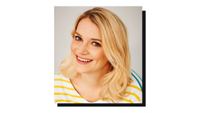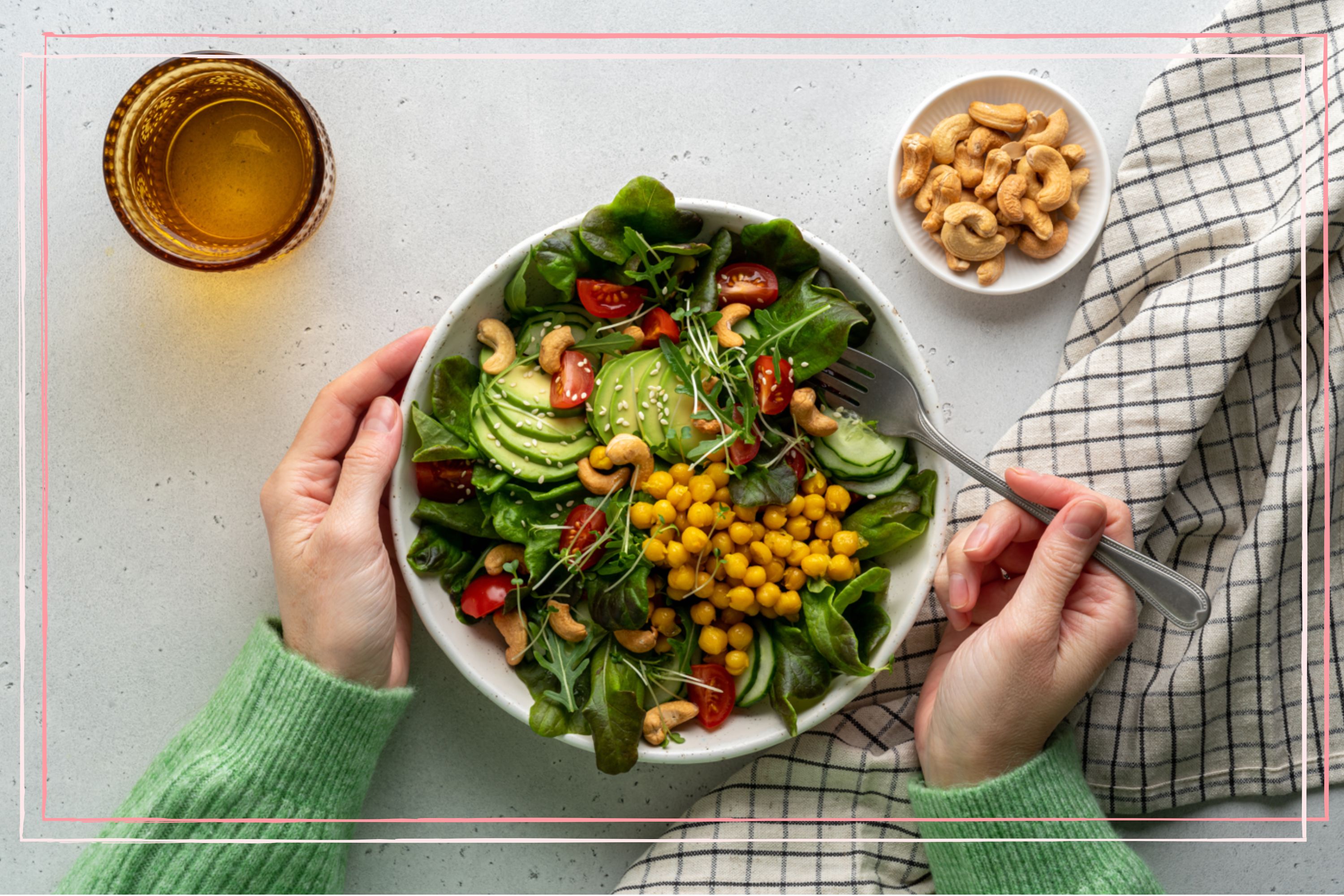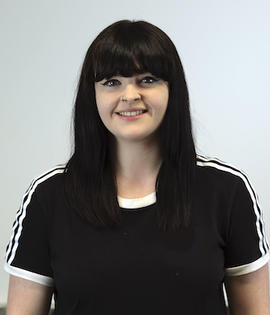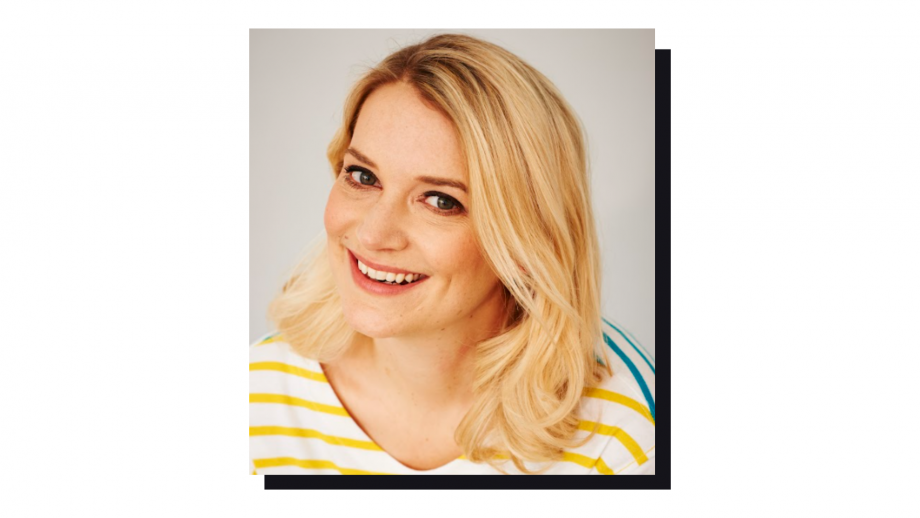What is reverse dieting and will it help you lose weight?
Here's how eating more could actually help you avoid weight regain...


It could be the key to speeding up your metabolism without leaving you feeling hungry - so what is reverse dieting?
If you've heard about reverse dieting and want to give it a try, we don't blame you - which is why we've spoken to the experts to find out exactly how it works. "The theory behind reverse dieting is that an increase in your calorie intake will help to speed up your metabolism," explains leading dietitian Sophie Medlin, director of CityDietitans. "This will then improve your energy levels, which have been driven down by a highly restrictive diet."
Reverse dieting weight loss results can be impressive for some people, especially if they are hugely into fitness. However, it might not be right for everyone. This is because unlike other successful diet programmes, such as the Noom diet, Cambridge Diet Plan or the Jane Plan diet, which often get rave reviews on social media, reverse dieting is usually only followed by extreme athletes. But if you think you could benefit from a reverse dieting plan, here's everything you need to know...
What is reverse dieting?
Reverse dieting involves eating more calories in order to help build muscle, instead of other methods of dieting which usually involving cutting down on calories to help reduce fat and lose weight.
"Reverse dieting is a method frequently used by bodybuilders and athletes," says expert Chloe Twist, fitness content manager at OriGym. "It involves slowly increasing your daily calorie intake after an initial dieting period, with the aim of raising your metabolism."

But that's not all. "Aside from the nutritional aspects, the focus on cardio training is usually shifted to strength training to help speed up the metabolism further," explains Chloe. "This in turn should negate the usual weight gain that follows an increased calorie intake post-diet. Instead, it will help you return to your regular diet rather than sticking to a more long-term calorie-restricted plan."
Sophie Medlin adds that reverse dieting is a term coined by the body building community. She says: "Body builders use it to gradually and strategically increase their energy intake after a competition in order to support muscle growth and reduce the likelihood of bingeing. It is generally required because the diet that someone has been on is unsustainable in the long term."
Parenting advice, hot topics, best buys and family finance tips delivered straight to your inbox.
Can you lose weight while reverse dieting?
You can lose weight while reverse dieting if you are very strict and follow a carefully planned regime. However, Sophie explains that the point of this type of diet isn't actually to lose weight, but to gain muscle. This means that you would gain weight in the form of muscle mass instead.
"Reverse dieting is more about weight maintenance and adjusting body composition than weight loss," she says. "If you’re a highly trained athlete or body builder, reverse dieting may be used to maintain a low body fat percentage, while increasing muscle mass. However, for regular people, increasing calories will almost always mean weight gain."
Therefore, reverse dieting isn't recommended by experts unless you are a body builder or being supervised by a professional.
"If you’ve got your body fat percentage so low and have been following a restrictive diet for so long that you’re scared to get back to normal eating and don’t know where to start, please speak to a registered dietitian with training in eating disorders and disordered eating," warns Sophie.
"The metabolic shifts that happen when we go from long term starvation to normal eating can be fatal," she adds. "If I was working with a client who had been extreme dieting over a long period, we’d gradually introduce foods again with the full psychological support that is needed and with careful monitoring of electrolyte levels."
How do you gain muscle with reverse dieting?
This is where it can become a bit scientific. After dieting our body will be in a catabolic state, meaning it is breaking down body tissue, but when we start eating more the body can then use the food to build muscle.
"When we’re in the starved state - like a body builder when they’re competition ready - it is very hard for our bodies to gain muscle," says Sophie. "This is due to a metabolic state called ‘catabolism’. Here, you break down body tissue rather than building. When we start eating more, our body is able to use the food to build muscle again and that’s why you can lay down muscle when reverse dieting, because you’re out of the catabolic state."
Chloe adds: "To gain muscle mass during a reverse dieting period, it’s best to stick to a weight training programme that involves progressive overload, as well as a high protein diet (that is not too excessive in fats and carbs).
"Gaining a higher percentage of your calories from protein will prevent you from overeating. It will also provide your muscles with the energy that they need in order to recover and grow."
Chloe explains that some exercises have bigger benefits than others. "Compound exercises, such as deadlifts, squats, rows, and bench presses are the best to incorporate," she says. "This is because they they will trigger muscle growth in all areas of your body."
When should you stop reverse dieting?
It's best to plan ahead for when you want to both start and stop. You should set a calorie goal to reach at the beginning of the process, and then end your diet when you have reached your goal.
Chloe explains, " You should be left feeling as though you no longer have to count every calorie that you consume in order to know that you are eating within the correct range."

But experts argue that, for some people, it's best not to start reverse dieting in the first place. "Regular people don’t ever need to think about reverse dieting," says Sophie. "If your diet has been so restrictive that you’re scared to go back to normal eating, you need help from a dietitian who is trained in disordered eating. For body builders, reverse dieting can be stopped when they reach a diet that is sustainable and is maintaining an ‘off season’ physique where muscle growth is optimised."
Does reverse dieting work for everyone?
If you're looking for sustainable results, you might be disappointed. Like many diets, reverse dieting will not work for everyone.
"Dieting is highly subjective," says Chloe. "It all boils down to the individual’s mindset and whether or not it is manageable or even healthy for them to track every calorie that they consume. In theory, reverse dieting can work for everyone, but not everyone is willing or able to do this."
In fact, if you do want to try to lose weight, it might be better to try something less extreme.
"There isn’t any convincing evidence that reverse dieting works for anyone at all," says Sophie. "For healthy people, it is completely unnecessary. Our diets should never have become so restrictive that this process is needed."
Put simply, it could do more harm than good. "It is certainly a fact that extreme dieting reduces our energy expenditure and increases our hunger hormones, which is what reverse dieting is trying to undo," says Sophie. "However, if we didn’t ever diet to the extreme that our metabolism slows and our hunger hormones are disturbed, we wouldn’t ever need this process."
Related features:
- 21 fat burning foods for weight loss
- The best time to eat breakfast, lunch and dinner
- What to eat after a workout
- The 16:8 diet plan
- 5:2 diet meal plans
- The 8 Hour Diet
- What is the Keto diet?
Video of the Week

Sophie Medlin is a well-recognised consultant dietitian and is the Chair for the British Dietetic Association for London. Sophie has expertise in gastrointestinal and colorectal health. She worked in acute hospitals specialising in gastrointestinal diseases before moving into academia, where she worked as a lecturer at King’s College London.
Sophie has specialist knowledge and skills in the management of medical conditions such as irritable bowel syndrome (IBS), colorectal dysfunction, diverticular disease and polycystic ovarian syndrome.

Since joining the OriGym, Chloe has become a qualified Personal Trainer and advanced Sports Nutrition Specialist. Chloe’s professional interests intersect content-development and the world of online fitness, especially across social media and YouTube, and Chloe has herself contributed pieces on fitness and weight loss to sites including the Daily Star and The Express. Outside her day-to-day role, Chloe enjoys playing the guitar, gaming and kettlebell training.

Faye M Smith is a Senior Health And Lifestyle writer working across Woman & Home, Feel Good You, Woman’s Own and Woman magazine. Having gained an NCTJ postgraduate diploma, Faye has worked for 15 years in journalism, covering a range of lifestyle topics for companies including the BBC, Press Association, News UK and Hachette.